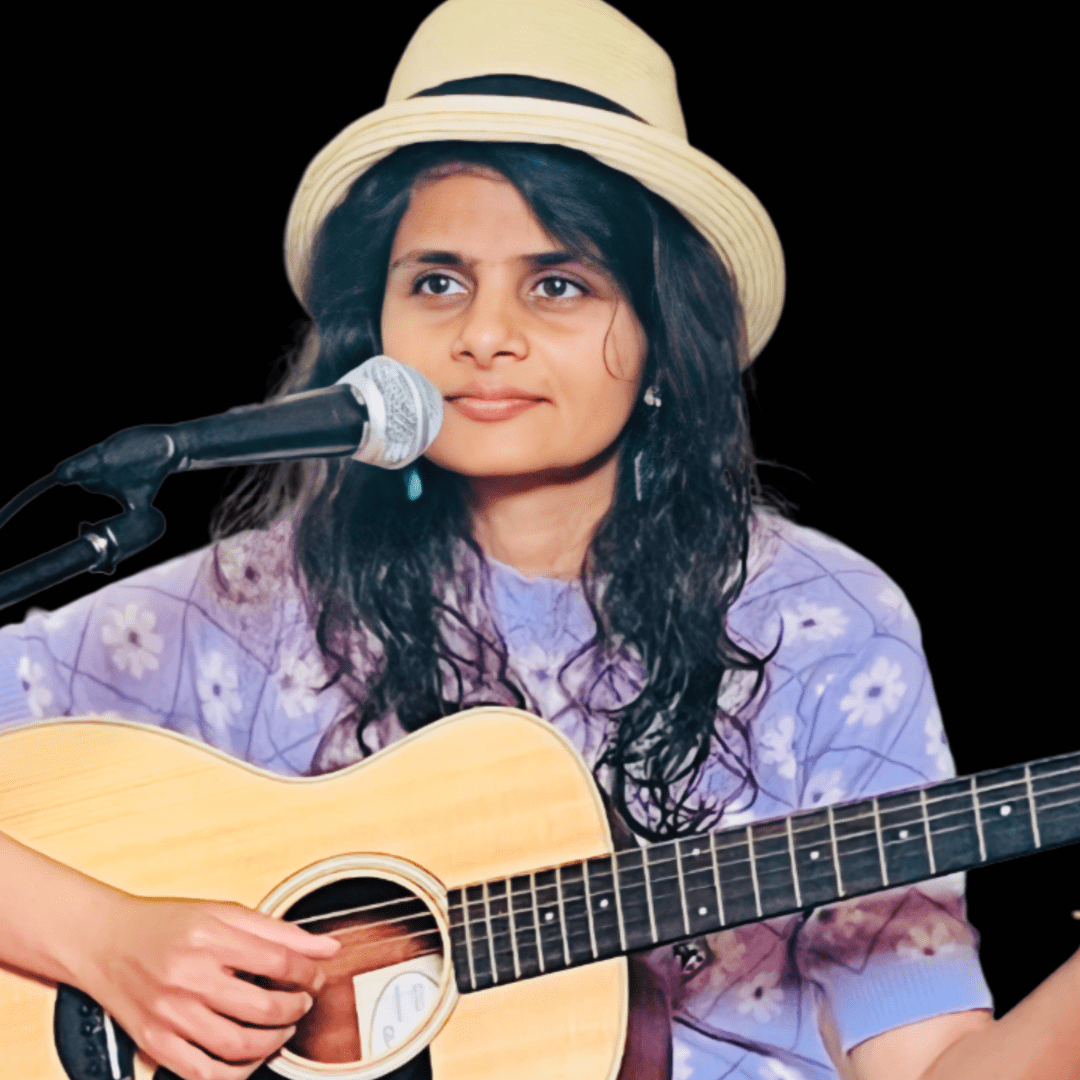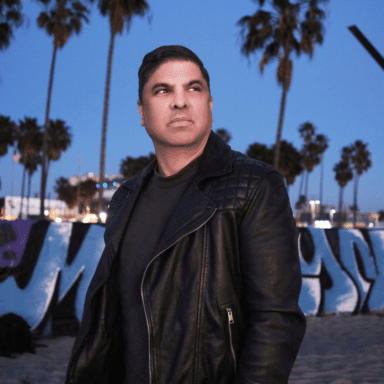Shweta Harve is making waves in the indie music scene with her latest release, “Who Are You?”, which has swiftly ascended to #1 on the World Indie Music Charts and #4 on the Euro Indie Music Charts. As the founder and lead singer of HridayaSheela, Shweta has crafted a powerful track that is both introspective and compelling, capturing the essence of her unique sound.
“Who Are You?” is deeply influenced by the ancient philosophy of Advaita Vedanta, offering a sonic exploration into self-awareness and existential reflection. The song features Shweta’s ethereal vocals intertwined with the intricate compositions of Italian maestro Dario Cei. Written by poet Jay Krishnan, its lyrics challenge listeners to delve beyond superficial identities and discover their true selves.
In this exclusive interview, we delve into the inspiration behind “Who Are You?,” exploring its philosophical roots and the creative risks Shweta Harve took during its development. We’ll also discuss her collaboration with Jay Krishnan and how Advaita Vedanta shapes both her personal and professional life. Join us as we uncover the artistry and thoughtfulness behind Shweta Harve’s groundbreaking musical endeavor.
What’s the most surprising or unconventional source of inspiration you’ve drawn upon for “Who are you?” and how did it influence the final track?
The nature of the human condition is to seek permanent happiness among impermanent things. For the songwriter Jay Krishnan, the song emerged spontaneously while pondering this phenomenon: the insatiable sadness and the unending momentary arrival and departure of joy.
A significant inspiration for this piece came from the Indian school of non-dualistic teaching called Advaita Vedanta which has at its core the inquiry of ‘who we are’. It advocates reflection on ‘who we are’ under the passing and the ephemeral, the everyday feelings that seldom stay, and the momentary dust of living under the echoes of worldly existence. When we discard the momentary passing phenomenon that we think we are, we discover a timeless, uncontaminated universal part of our consciousness that exists beyond the labels, the desires, and the ideas we take to be ourselves. The realisation of this space is the ultimate antidote to the human condition. The song attempts to do this exercise through a series of questions, nudging the viewer to not settle for lesser answers and discover their larger, eternal essence. A desperately needed enquiry in times of rampant capitalism and social media toxicity where we outsource our identity to external acquisitions. And therefore, inevitable sadness. In essence, it is a spiritual inquiry incognito as a song. “Who you see is not you, you are the one who sees” distils the song’s central theme of exploring the self beyond external appearances and fleeting emotions.
Can you walk us through a day in the studio while working on “Who are you?”? What was the atmosphere like, and what were some pivotal moments during its production?
We have created this song with a team sitting in four different geographical locations from the US, Italy, Ukraine, and India. From coordinating the recording of vocal stems to getting all the instrumentation in order for the mixing and finally getting the music video made, it has been quite an exciting journey of hard work and collaboration. Our Italian music composer, Dario Cei who is a master of instruments, spent considerable time achieving impeccable sound quality with the song’s layered composition. Our extended team at Applied Wonder that made the video has toiled in several hours stitching together hundreds of videos to come up with a spectacular, cinematic edit of the song that delivers the lyrics and the theme of who we are beyond what the world makes us. What makes it more heartfelt is that our Audio Mixing & Mastering Engineer, Serhii Cohen, from Ukraine mixed this song literally in a war zone when parts of Kyiv were being shelled by Russia. And finally, the most memorable moment for me (Shweta) is that I had to sing some parts of this song, literally from my closet; most of it was, of course, done at the recording studio.
What kind of creative risks did you take with “Who are you?” that you hadn’t tried before, and how did those risks pay off or challenge you?
I think it is quite a risk when introducing, for the first time ever, a musical journey on self exploration that takes one through captivating imagery & melody with a progressive rock twist. Musically, “Who Are You?” challenges the limits of traditional music categories, effortlessly merging Adult Contemporary, folk rock, psychedelic, and progressive genres to create a truly original and unforgettable sound. From the very first note, “Who Are You?” captivates listeners with its delicate balance of whispering vocals and reflective melodies, conveying a sense of mystery as if being emoted from the depths of an inner voice. As the vocalist, I’ve aimed to employ a dreamy, almost eerie yet soothing tone, accompanied by meaningful lyrics, guiding listeners on an insightful journey that transcends societal norms and superficial identities.
The composition features complex guitar riffs, nuanced drum beats, and sophisticated piano melodies, all set to a moderate rhythm designed to provide an ideal setting for the song’s reflective themes, while the harmonious chorus is crafted to make a memorable impression on the audience. The official music video is an impressive, cinematic montage that weaves together numerous clips to convey the song’s message about our true selves beyond societal expectations. It offers a sweeping, epic perspective on the world, society, individuals, and emotions, distilled into an engaging short film. Through “Who Are You?” we’ve aimed to create a profoundly expressive and captivating song that blends introspective music with captivating rock elements, encouraging listeners to reflect on life’s most significant questions. These elements combine to create a distinctive song that is both challenging and rewarding to produce. “Who Are You?” has already reached significant achievements, topping the World Indie Music Charts and landing at #4 on the Euro Indie Music Charts, with over half a million views and more on YouTube. These achievements highlight the song’s wide appeal and deep connection with listeners around the globe.
“Who Are You?” is inspired by the philosophy of Advaita Vedanta, which explores themes of self-discovery and the impermanence of life. How do you integrate this philosophy into your daily life and career?
Advaita Vedanta is the essence of one’s existence. It encompasses both the discipline and the craft of leading a life to its utmost and finest state. It represents the blueprint for an ideal life, the principles of wisdom, and the principles of freedom. It goes beyond mere theoretical concepts or conjectures about what ‘should be’, to actual understanding of what ‘is’. In today’s world, the pursuit of wealth is more prevalent than ever, with money being revered to an extent never seen before. The impact of capitalism is widespread, leaving no corner of the globe untouched. I support the concept of capitalism, believing it has its benefits, yet it must be balanced with an awareness of our global community. We cannot simply view ourselves as self-centred beings, always focused on increasing our financial status. Human life encompasses far more than just self-interest. The issue lies in the fact that not everyone is inherently selfish. Even those who act selflessly are often pushed towards a belief system that taints them, making their forced assimilation unjust. This is where the principles of Advaita offer significance and direction, resonating deeply with those who value logic.
Advaita encourages us to reflect on our purpose, fulfilment, and significance in our professional life. Dharma is about the natural inclination towards action and is about how our job allows us to utilise our extraordinary potential. We all have unique talents, yet we often overlook them in pursuit of financial gain. Ultimately, many find themselves trapped in a cycle of work that seems to be accelerating. Advaita, however, encourages individuals to consider their personal happiness while still acknowledging the importance of financial stability and their duty to the world. It’s a deeply personal quest that can’t be taught by anyone. Adi Shankaracharya emphasises that the true Guru (teacher) is within oneself. Advaita helps us become more in tune and truthful with our inner self. Advaita guides us not only in managing our professional life but also in interacting with our loved ones and the broader community. It’s a practice accessible to everyone, not limited to just monks and spiritual seekers. By living in the moment and concentrating our limitless focus on the task at hand, we can attain Zen. The concept of being present is essentially the essence of Zen or meditation. The ultimate aim of Advaita is to strive for excellence in every aspect of life, from fulfilling responsibilities to being truthful to oneself and elevating one’s spirit to its utmost potential at all times. Observing figures like Erwin Schrodinger or Sam Altman can illustrate how Advaita can be applied in daily life to make significant contributions to fields like Quantum Physics and Artificial Intelligence for the benefit of the global community. If Einstein achieved such feats, so can we; our minds and his are part of the same pool of consciousness. Nietzsche observed that while we often claim to be without Gods, we simultaneously idolise entrepreneurs, business moguls, actors, and influential figures. In essence, we’ve merely shifted our pantheon of deities. This is the core principle of Advaita, which places equality at the heart of its philosophy. To its activists, Advaita champions the singular unity of all human existence. For those in the scientific community, particularly those who follow Darwin’s theories, Advaita extends this unity to encompass all forms of life. Every biologist who understands evolution knows that every life form is equal. Advaita doesn’t stop there. It also explores the singular unity of all existence, influencing much of contemporary philosophy. Figures like Schopenhauer dedicated their lives to studying the Advaita Upanishads, considering them almost superhuman in their depth. Advaita Vedanta encourages us not to shy away from life’s challenges. Instead, it urges us to fully commit to overcoming obstacles with all our strength. It emphasises the importance of not fleeing from life’s trials. For those disillusioned with the corruption and complexities of politics and everyday life, Advaita can provide profound comfort. If yoga were introduced to young minds, those struggling mentally, and those living difficult lives, Advaita would guide them away from feeling victimised and towards recognizing the infinite well-being within themselves. Why seek fulfilment from external sources when one already possesses an infinite well of joy and contentment? The pursuit of pleasure and moral relativism hold no value in a society that adheres to Advaita. The philosophy of Advaita Vedanta has influenced not only the field of science but also the realm of science fiction. During my teenage years, the film Matrix left a lasting impact on me and my peers, a testament to its cultural significance. It’s no wonder that the Wachowskis drew inspiration from Advaita Vedanta. The central concept of the Matrix, though not as profound as the depth of Advaita Vedanta, was still deeply resonant. To grasp the essence of this, one could listen to the Navras (Nine rasas) song lyrics from Matrix Revolutions.
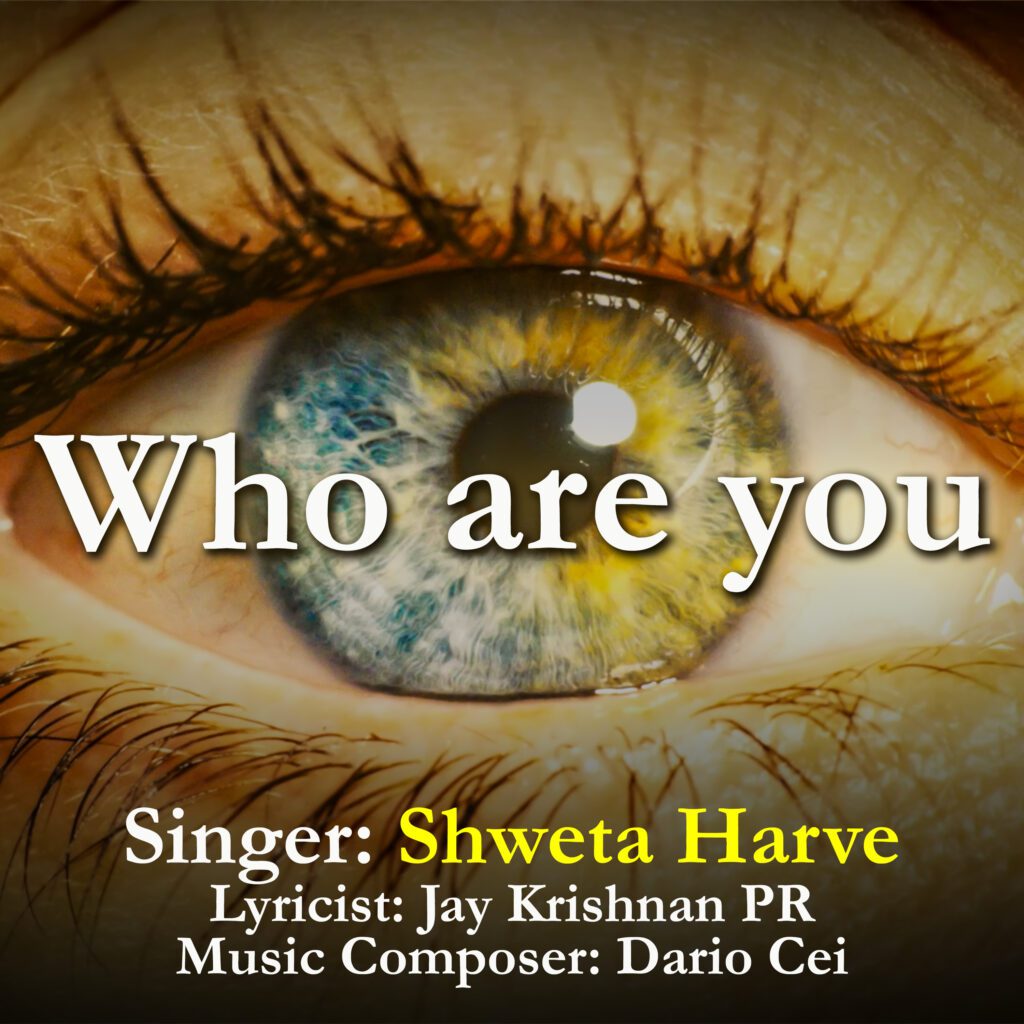
It is the ultimate secret to being more productive. I’ll draw inspiration from the wisdom of other great minds such as Adi Shankara, Ramanuja, Madhvacharya, Vivekananda, Chinmayananda, Sivananda, and many more to discuss how personal growth and self-discovery can lead to a more fulfilling life. These individuals were incredibly knowledgeable and remarkably efficient in their work. There’s a method to access a deep well of calm and peace within oneself. By practicing Advaita in your daily life, you’ll find that your disappointments will seem less severe, and life’s challenges will appear more manageable. Your energy and zest for life will grow, and you’ll also find yourself more effective in your everyday tasks. You’ll start to question societal norms more critically and realise that even the theories of great minds like Einstein or Stephen Hawking have their flaws. This newfound curiosity is a key part of understanding Advaita. The best way to learn Advaita is by asking as many questions as possible. Science may falter if you stop questioning, but Advaita doesn’t. If you stop questioning altogether, you’ll end up with religion. If you stop questioning after that, you’ll be left with Science. But if you keep questioning, you’ll achieve Advaita. It is the core of wisdom. The fundamental message of science and knowledge leads us to Advaita. To grasp Advaita, it’s crucial to comprehend the fleeting nature of our existence. Each person reading this piece will no longer be with us after a few decades, some earlier than others. If we don’t understand our purpose now, then when? Science reveals that our ancestors have been on this planet for a staggering 4.3 billion years. What purpose does the continuous cycle of creation and destruction, in various forms and bodies, serve? The secret to unravelling the mysteries of the universe lies in maintaining our awareness at the heart of all comprehension and pondering the elaborate illusions we create within ourselves to manifest feelings, thoughts, and actions in the external world. Advaita refers to this as ignorance. Every truth is self-obvious and resides in the deepest parts of our minds. Once we delve inward, all the answers will present themselves.
Could you tell us more about your collaboration with Jay Krishnan on “Who Are You?”? What was the collaborative process like, and how did his vision and expertise shape the final outcome of the song?
Jay Krishnan is one of the rare behaviour change experts with the capacity to conceptualise pure play creative ideas that are based on scientific behaviour change levers. He has been the chief creative mind behind some of the most globally acclaimed behaviour change campaigns. His poetry has sneaked under editorial radars to appear in global anthologies, magazines, and papers.
When we approached Jay for a possible musical collaboration where we take one of his poems and try to set the poem to music , the long time friend in him gladly accepted it. We were in search of that perfect song that could make a worldwide impact, and “Who Are You?” from his collection of poems became the ideal choice. We transformed his poem into a song.
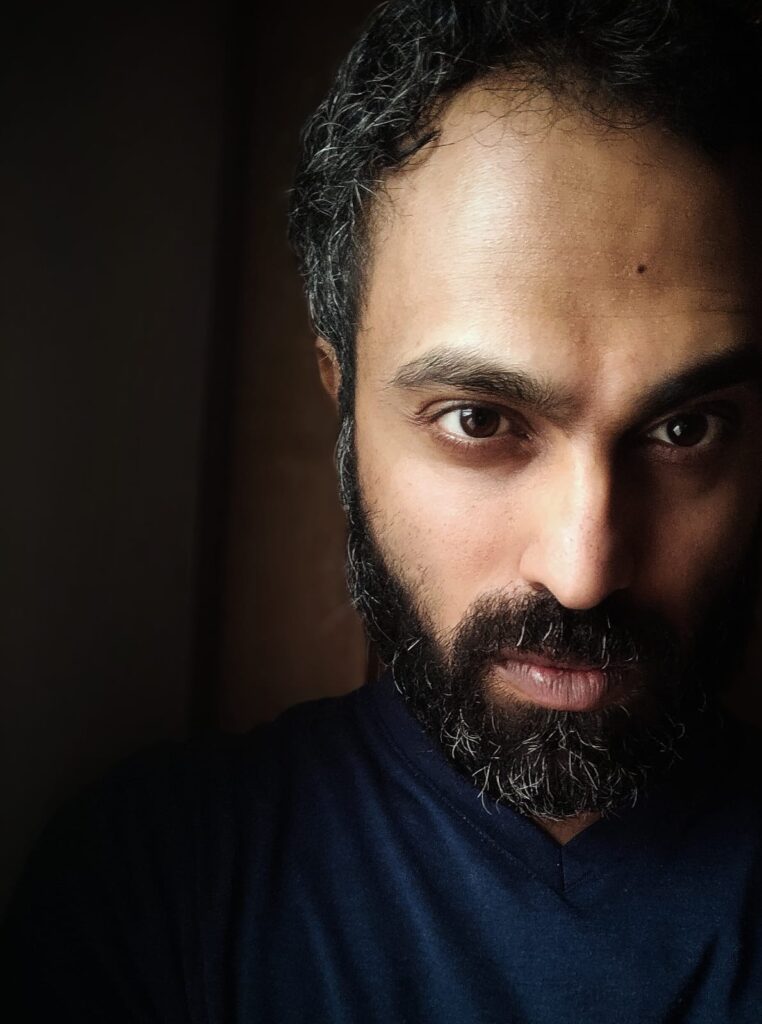
It was an amazing experience for all involved. For Jay, to watch a unique and different creative vision metamorph his poem into an altogether different creative format and entity. For us to take the poem with its native tone of voice and take a different view as we melded it with music. We all watched with bated breath as it grew and changed passing between the poet, the music composer, the singer, and the mixer. Thankfully we were all pleased with the final output. That brought us to the next pressing task of creating a music video that didn’t diminish the beauty of what we had painstakingly crafted through several rounds of labour.
Jay also runs a boutique film making organisation and communication studio called Applied Wonder. We handed off the song’s exquisite baton to them for the music video production. With the team at AW, particularly Ashwini Ramamurthy, and under Jay Krishnan’s direction, they made an epic edit that stitched together nearly 250 odd videos to create a very different kind of film. A piece of art emerged that straddled poetry, music, and filmmaking. And almost entirely organically this song has raked up over half a million views in the last two months. It has achieved the top position in global indie charts, been played 1000s of times in radio channels across the world and got us a flurry of coverage in prestigious magazines. It is heartening to know that hundreds of thousands of people around the world connect to a piece of art we made with friends literally in our basements. Just a reflection of how art has the capacity to transform our private emotions into silver filaments that connect our collective consciousness. Another flower in our sacred creative altar that has quietly created a small creative ripple in the world.
What drove you to become a musician?
I’ve been deeply fascinated by music since childhood. I recall effortlessly playing tunes I’d heard on the radio on the piano after just a couple of listens. Over the past few years, I’ve had the opportunity, the money, and the means to dive back into it with greater dedication. I feel as though music was my birthright, and it’s my mission to share it with the world through meaningful musical creations. I believe if someone is blessed with talent, it’s their duty to share it with the world to create a positive effect.
What’s the best piece of advice you’ve received from another musician?
The most valuable guidance I’ve gotten, besides regular and methodical practice, is to separate the dreams and goals from the act of creating music. It’s about developing a passion for the journey of composing music and the happiness it brings, rather than seeking ongoing approval and validation from people. Strive hard to create excellent music, but don’t focus too much on the outcome. You are not entitled to the rewards of your labour. The desire for these rewards should never be your reason for creating music. Remain calm and equanimous in both success and failure. Do your duty but do not concern yourself with the results. Finally, create music that is meaningful, heart touching, and that contributes to a positive transformation globally.
Can you share the story behind the formation of HridayaSheela? What inspired you to create the band, and how has the journey evolved since its inception?
HridayaSheela came into existence in 2022 as a musical homage to my mother who was also a talented singer. During my own journey of healing, Dario and I began by composing soothing music through instrumental tunes and chants, which eventually evolved into an indie band that draws inspiration from various genres including progressive rock, pop rock, and folk. Dario Cei, our Italian music composer, is a virtuoso with various instruments and excels in creating melodies that span from catchy foot-tapping harmonies to complex yet serene and reflective pieces. As the band’s frontman, songwriter, and primary producer, I am committed to delivering heartfelt lyrics and music that challenge the norms of indie inspirational music, particularly when working with our brilliant lyricist friend Jay Krishnan.
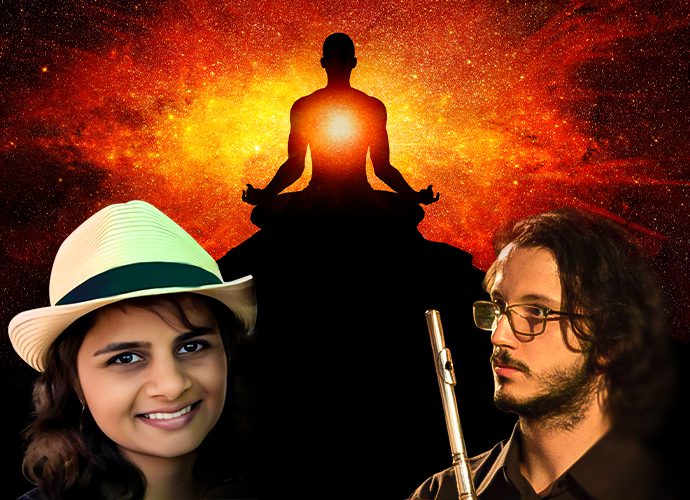
How do you see the evolution of your music over the next five years? What new directions or themes are you excited to explore?
This age-old adage, “When words fail, music speaks,” captures our ambition to revive the golden era of music with deep, meaningful lyrics. As creators, it’s our responsibility to craft music that’s not just entertaining but also impactful. The core of our music is to touch hearts, stir emotions, and inspire change, positively affecting people’s lives. We strive to pen songs that evoke feelings, thoughts, and take listeners on a journey through life and beyond. Our compositions will be rich in depth, tackling not only personal growth but also offering a moving and expressive critique of social issues. We plan to blend the reflective nature of introspective music with the captivating elements of rock, pop, and folk. Our goal is to explore the boundless possibilities of human life through our thought-provoking and reflective lyrics. We pledge to deliver music that’s deeply moving, with lyrics that are heartfelt and a mix of singles that will unlock the hidden potential within each of us, essential for personal growth. We aim to break new ground in inspirational music through our creative efforts. Our blend will lead to songs that are soothing, energising, visually appealing, and offer a thought-provoking experience that lingers long after the music fades.
